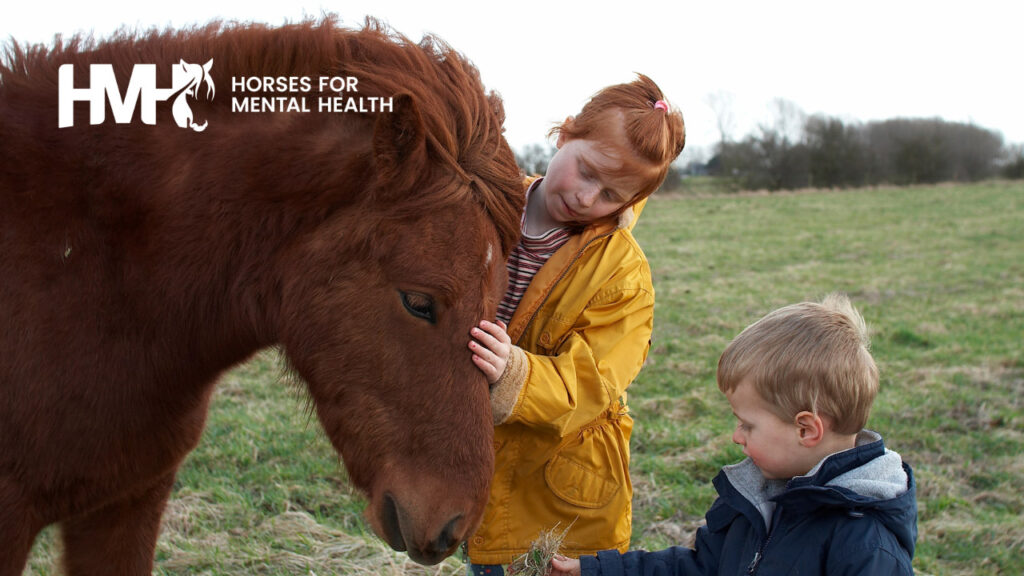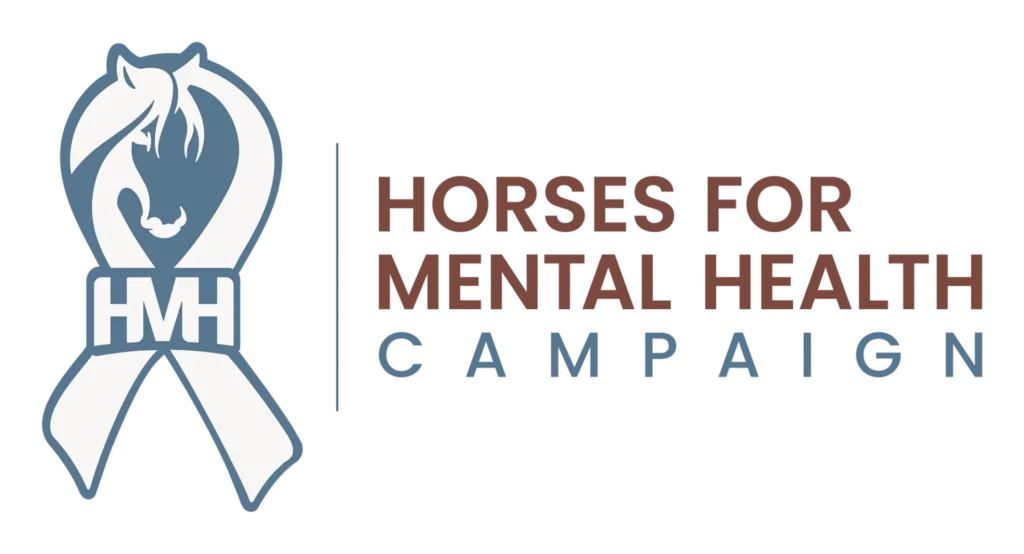Remember the game “3 Truths and a Lie” where 4 statements are given and you have to guess which one is a lie? For Mental Illness Awareness Week, let’s play a version of that game, but with a twist: it’s all about mental illness. This is a great way to learn more about mental health and the underlying prejudices we don’t even realize we have.
Once we reveal the truths (and the lie), we’ll also explore how psychotherapy incorporating horses can support a mental health journey. Horses, with their remarkable intuition and calming presence, play an essential role in promoting emotional well-being, making them powerful allies in psychotherapy when coupled with the expertise of trained mental health professionals. Ready to play? Let’s dive in!
The Game: 3 Truths and 1 Lie
Here are four statements. Can you spot the lie?
- Psychotherapy incorporating horses can help individuals with anxiety, depression, and PTSD.
- Mental illness isn’t always hereditary—it can be triggered by life events or trauma.
- Mental illness affects people of all ages, races, and backgrounds.
- You can tell if someone has a mental illness by looking at them.
Revealing the Truths
Let’s reveal the answers and dive deeper into the facts:
- Truth: Psychotherapy incorporating horses can help individuals with anxiety, depression, and PTSD.
Horses are highly intuitive animals, naturally attuned to human emotions and behaviors. Their responses offer valuable, non-verbal feedback that can help reduce symptoms of anxiety, depression, and trauma. The deep, unique bond formed between humans and horses fosters emotional growth and healing, enhancing the treatment process and often delivering meaningful results for those who may not have found relief in other settings. - Truth: Mental illness isn’t always hereditary—it can be triggered by life events or trauma.
While genetics can play a role in mental illness, many mental illnesses are caused or worsened by environmental factors, trauma, or stressful life events. Therapy involving horses helps individuals process these difficult experiences in a safe and supportive environment. - Truth: Mental illness affects people of all ages, races, and backgrounds.
Mental illness does not discriminate. It can affect anyone, regardless of age, race, or background. Understanding this truth is a key part of breaking the stigma surrounding mental illness, and it encourages more people to seek help. - Lie: You can tell if someone has a mental illness by looking at them.
This is false! Mental illness doesn’t always show physical signs. Many people with a mental illness may seem perfectly fine on the outside, but they could be experiencing challenges internally. That’s why it’s crucial to approach others with compassion and understanding, regardless of how they appear.
Understanding Mental Illness: What Is and What Isn’t Mental Illness
Not all emotional or behavioral struggles are classified as mental illness. It’s important to distinguish between conditions that require treatment and natural emotional responses to life events.
What Is Mental Illness:
- Depression: Persistent sadness, lack of interest in activities once enjoyed.
- Anxiety Disorders: Excessive worry, fear (e.g., generalized anxiety disorder, panic disorder).
- Bipolar Disorder: Extreme mood swings between highs (mania) and lows (depression).
- Schizophrenia: Affects thinking, feeling, and behavior, often including hallucinations/delusions.
- OCD (Obsessive-Compulsive Disorder): Recurring, unwanted thoughts and repetitive behaviors.
What Isn’t Mental Illness:
- Normal Grief: Sadness after a loss is natural and not a mental illness.
- Temporary Stress: Work or life changes may cause stress but often resolve without treatment.
- Personality Traits: Characteristics like shyness or introversion are individual differences.
- Lifestyle Choices: Erratic behavior or lifestyle issues (e.g., poor diet, inactivity) can signal underlying mental health issues but aren’t mental illnesses themselves.
Sophie Grace Advocates for HMH During Mental Illness Awareness Week

We’re grateful to Emmy Award-Winning Actor @realsophiegrace for continuing to raise awareness for Horses For Mental Health, and for cheering everyone around the world who has liked, commented, or shared @horsesformentalhealth posts.
Sophie has loved horses since she was a little girl and has advocated HMH over the years. We appreciate her lending her voice to help amplify our mission to raise awareness for the horse-human connection.
To check out Sophie’s post, visit here.
Myths Debunked, Healing Begins
This Mental Illness Awareness Week, let’s break the myths that prevent people from seeking help. Mental illness affects individuals from all walks of life, and psychotherapy incorporating horses provides a compassionate approach to healing. By understanding the truth about mental illness, we can reduce stigma and encourage more people to seek the support they deserve.
Ready to explore how horses can help you or a loved one on the path to healing? Click here to learn more.










